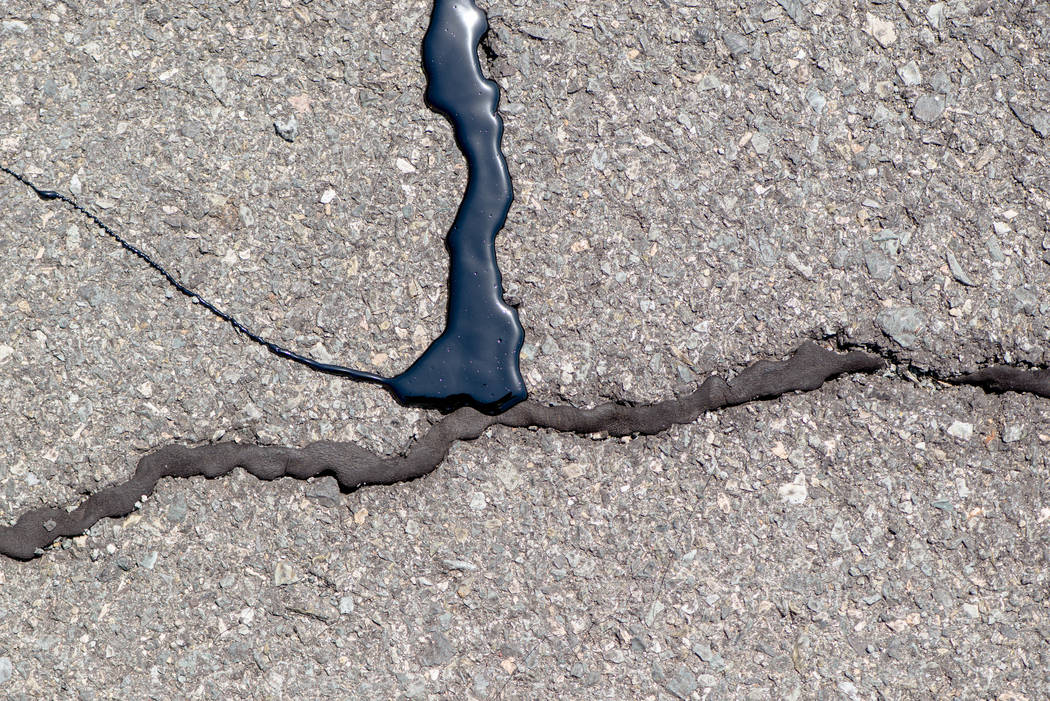Thoroughly clean driveway before asphalt repair
Q: I live in an older house that has an asphalt driveway. The problem is that over the years, rain and weather have made divots and small cracks in the driveway. What can I do to repair the holes in the asphalt?
A: Asphalt repair is pretty straightforward.
Start by cleaning out the debris in the holes. Pull out any vegetation. Get rid of any loose asphalt. Use a cold chisel and a hammer to knock loose edges off. You want to get down to a firm area so the patch has something to grab.
It is very likely you will make the hole bigger by doing this, which is no big deal. The ideal depth of the hole is about 2 inches. Make the walls of the hole vertical so that the patch compacts nicely. Once the hole is dug out, use a wet/dry vacuum to suck out any remaining debris.
Buy a bag of cold mix asphalt patch. Use a garden trowel to scoop out some of the mix and push it down into the corners. Fill about an inch at a time and then compact it using a rented hand tamper.
You can also use a 4-by-4-inch piece of lumber. Overfill the hole by about three-eighths of an inch. Drop the end of the 4-by-4 on top of the patch. Keep adding more of the patch and compacting it until the hole is full and level with the surrounding asphalt.
For the cracks in the driveway, use liquid asphalt crack filler. You can buy this in a tube (about $5) that slips into a caulking gun. Snip off the tip and fill the small cracks. Treat cracks an inch or larger as holes.
If the crack filler settles at all, add some more to level the surface. You want the surfaces of your repairs to be flush. If not, water will pool in these areas, and you will be doing this again next year.
You can dress up the driveway with a sealer after the repairs. You will want to wear clothes and shoes that you plan to throw away.
Sealer is generally sold in a 5-gallon bucket. Before you apply it, however, the surface must be thoroughly cleaned. Use a degreaser and remove any grease or oil stains, and then wash the entire surface with a detergent and hose it off. Allow it to dry completely before applying the sealer.
Pour the sealer out of the bucket and spread it around using a push broom squeegee. The sealer is a stinky, sticky, soupy mess, so keep the kids busy when you are doing this one. The sealer is a bit congealed, so you will need to push it around a bit. Start at the top at the perimeter and work your way downhill. Stay off of it for a couple of days.
Mike Klimek is a licensed contractor and owner of Las Vegas Handyman. Questions may be sent by email to handymanoflasvegas@msn.com. Or mail to 4710 W. Dewey Drive, No. 100, Las Vegas, NV 89118. His web address is www.handymanoflasvegas.com.
Do-it-yourself
Project: Asphalt repair
Cost: Around $25
Time: 2 hours
Difficulty: ★★























